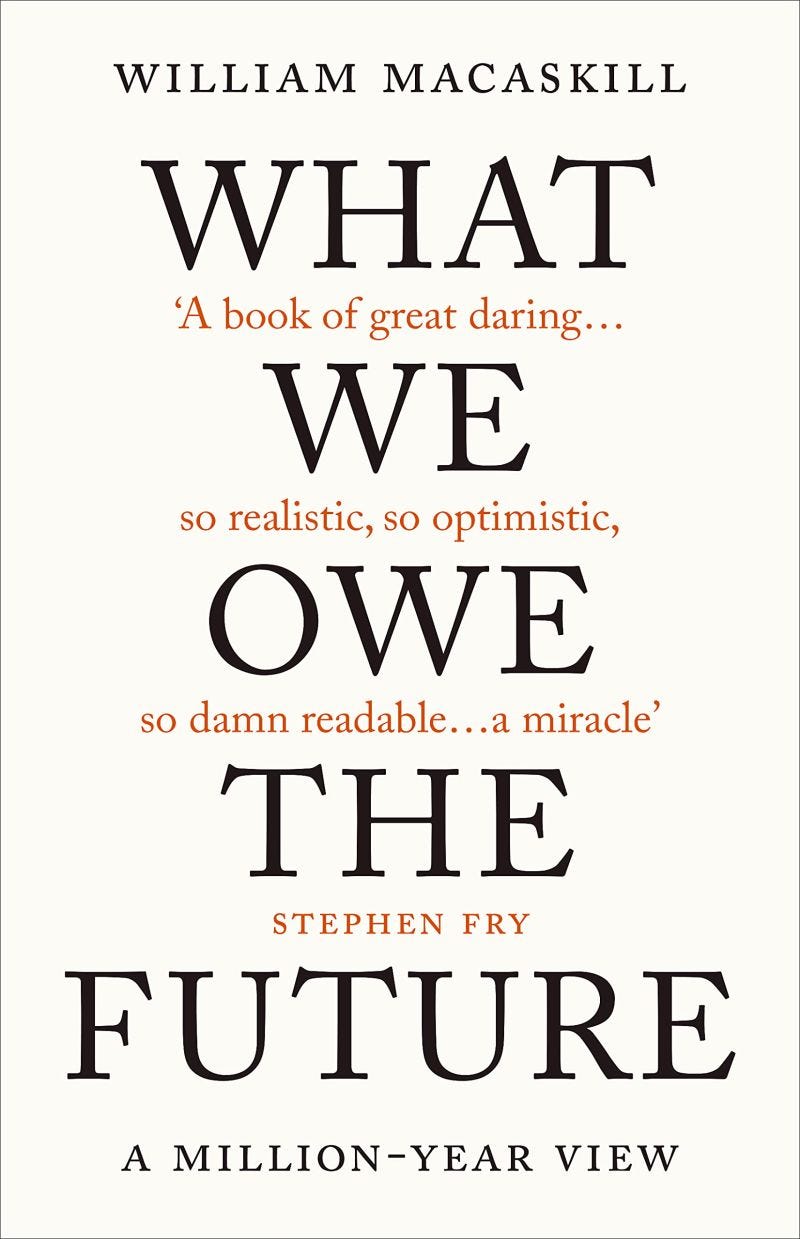What We Owe the Future by William MacAskill
Written by a Professor of Moral Philosophy, this book advocates for ultra-long-termism, asking us to consider the impact of our actions on the million-year future of humanity rather than focusing on short-term goals and outcomes.
Here are some of the themes our discussion touched on:
1️⃣ The scale and horizon of 'What We Owe the Future' rather blew our minds. 🤯 . It was a massive shift in perspective that we found quite disorienting at times.
2️⃣ Predicting the future is hard, and accuracy is not always possible. MacAskill guides the reader to a more directional approach, emphasising the scale and significance of potential events over their exact details and shows how to think about navigating through many unknowns and huge uncertainty.
3️⃣ The book seems written for people who have a strong desire to make an objectively large-scale and lasting impact, which often implies trying to move large systems and institutions. We felt it somewhat took for granted the front-line delivery of many important services and much of what happens outside of work.
4️⃣ For all the challenges we are aware of through the news, we reflected on how fortunate we are to live at this moment in time, thanks to the collective efforts of our ancestors. In this sense, the title of the book seems highly appropriate—don't we owe it to those who will come after us to build on this legacy and leave the world better than we found it?
5️⃣ In today's era of such rapid change, it can be hard to figure out what really matters. 'What We Owe the Future' introduces us to a framework to think about this and explores some specific instances, such as the risks of 'value lock-in' through artificial intelligence and some fascinating ideas like moral experimentation, which makes the case to nurture a range of different political and moral systems (even those we may not agree with) as part of maintaining a vibrant ecosystem from which our future values will emerge.
🌟 However, we felt that the analytical generalisations necessary to access such a massive scale of thought lost importanting nuance and above all humanity, while considering a topic (morality) that is at its root so human. In the conversation, we found ourselves bringing more compassion to the issues raised by the book—trying to get a handle on the'soul' of the future that is worth striving for, irrespective of the shape it ends up taking.
Thank you, Julia Nicholson Harig, Katie Steward, and Nicholas Kenwrick-Piercy for such an engaging discussion!
For further exploration: Podcasts - https://80000hours.org/podcast/episodes/will-macaskill-what-we-owe-the-future/ - https://www.econtalk.org/will-macaskill-on-longtermism-and-what-we-owe-the-future/ -
Other - Author's homepage:
https://www.williammacaskill.com


